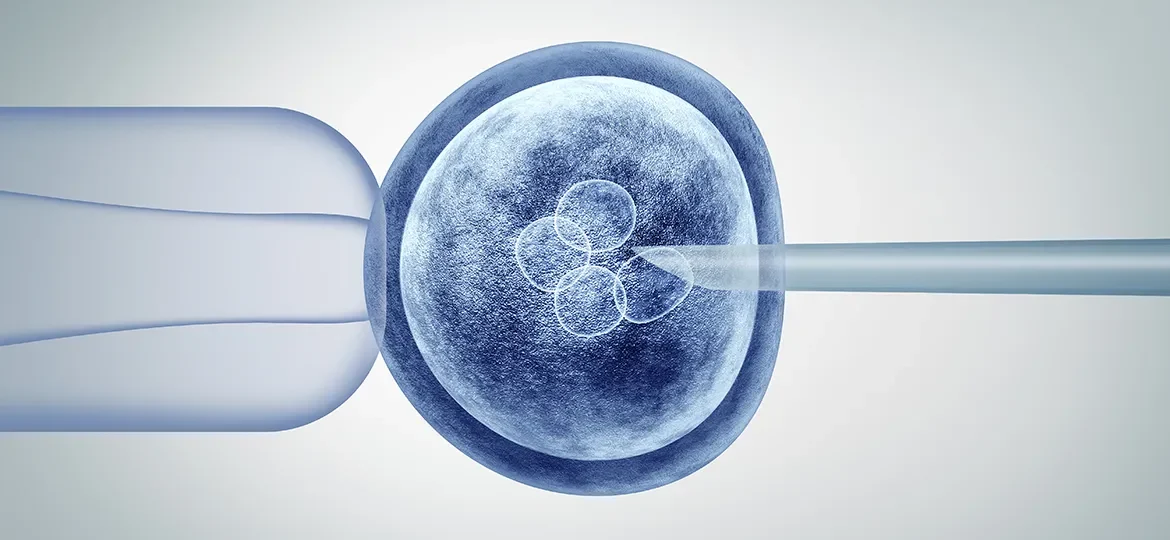
WHAT IS THE GENETIC COMPATIBILITY TEST (GCT)?
The Genetic Compatibility Test (GCT) is a genetic study performed in order to minimize the possibility of a hereditary disease being transmitted to our offspring. To perform the test, a blood sample is taken, to be able to analyze the DNA and search for thousands of genetic mutations associated with hereditary diseases. Among the most common are cystic fibrosis, osteogenesis imperfecta or thalassemia.
Most healthy people carry a recessive gene mutation, but they don’t display that trait or show symptoms of the disease. This is called being a carrier. If your partner has the same mutation, there’s a 25% chance that your child will manifest it, and 50% that they’ll become a carrier.
Thanks to new technological advances and the exome study, we’re able to analyze more than 50,000 mutations in more than 2,000 genes. This greatly reduces the risk of having a child with a recessive autosomal disease.
Ovobank can exclude from the egg donation program candidate donors who carry any of the autosomal recessive mutations.
WHO SHOULD DO THE GENETIC COMPATIBILITY TEST?
Couples who require egg or sperm donation treatments, in order to verify that they are genetically compatible with their donor.
Couples who present a risk of transmitting a genetic disease to their children.
Couples with a family history of hereditary diseases
WHAT IF MY PARTNER AND I ARE INCOMPATIBLE?
In the case that a genetic incompatibility is detected, it means that both members of the couple carry the same DNA mutation, and therefore have an increased risk of having a child affected with a genetic disease. In these cases, there are two options:
PGD test: A biopsy of all the embryos obtained is used to then only transfer those that are free of genetic diseases.
Donation of gametes or embryos: Eggs and sperm or donor embryos are used to perform the treatment.
WHAT IS PRE-IMPLANTATION GENETIC DIAGNOSIS (PGD)?
Preimplantation Genetic Diagnosis (PGD) is a form of prenatal diagnosis that’s performed on embryos created by in vitro fertilization, allowing us to study their genetics. In this way, only healthy embryos (for the particular anomaly studied) are transferred.
This analysis is performed with an embryo biopsy at the blastocyst stage at our Assisted Reproduction Center. After the biopsy, the embryos are vitrified, pending the results of the study, to be transferred at a later date. In some cases, it’s possible not to freeze the embryos and perform a fresh embryo transfer.
THERE ARE TWO DIFFERENT TYPES OF PGD:
PGT-A
The most common is PGT-A, which is used to exclude chromosomal abnormalities in the embryo, such as those causing Down syndrome or other chromosomal abnormalities, most of which are incompatible with life.
PGT-M
The second type is PGT-M, which is indicated for patients who suffer from certain genetic diseases or who are carriers of these diseases. The analysis is performed to determine whether the embryo will produce a carrier of this disease.
WHEN IS PGD RECOMMENDED?
ADVANCED MATERNAL AGE
Egg quality is adversely affected by age. Therefore, the older you are, the higher the percentage of embryos with chromosomal alterations. PGD is recommended in this group of patients in order to exclude altered embryos and increase the chances of pregnancy with the transfer of a healthy embryo.
RECURRENT MISCARRIAGES AND IMPLANTATION FAILURE
The main cause of implantation failure and miscarriage is chromosomal abnormalities in the embryo, so PGD is recommended in patients with previous treatment failures, so as to obtain more information and increase the chances of success.
ABNORMAL SPERM QUALITY
PGD is also recommended for patients with very abnormal sperm quality or sperm with pathologies, since in these cases the number of abnormal embryos tends to be higher than the norm.











